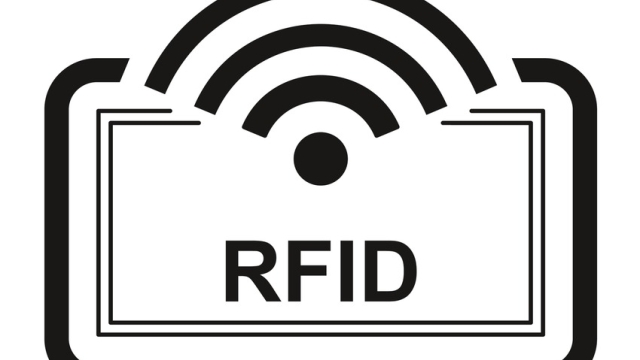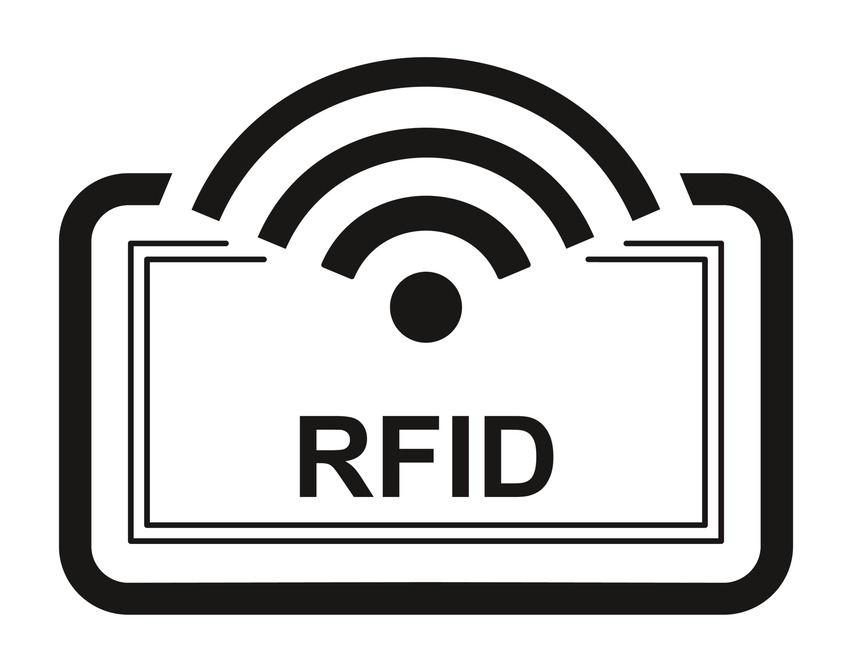The Future is Here: Unveiling the Power of RFID Technology
Joe Howard -
In a world driven by innovation and constant technological advancements, RFID technology emerges as a powerful force that is changing the way we interact with everyday objects. RFID, short for Radio Frequency Identification, has gained significant momentum in various industries due to its ability to seamlessly track and identify items without the need for direct physical contact. This groundbreaking technology is revolutionizing supply chain management, retail operations, healthcare services, and so much more.
One of the key advantages of RFID technology lies in its ability to provide real-time data and streamline processes with unprecedented efficiency. By utilizing radio waves, RFID tags are able to transmit unique information to readers, enabling businesses to capture insights and make informed decisions in the blink of an eye. From managing inventory and optimizing logistics to enhancing customer experiences, RFID technology has opened up a world of possibilities, transforming outdated practices and ushering in a new era of convenience and productivity. As we delve deeper into the potential of RFID technology, it becomes evident that the future is here, and it is more promising than ever.
1. Understanding RFID Technology
RFID technology, which stands for Radio Frequency Identification, is a revolutionary system that uses radio waves to transfer data wirelessly. It enables the identification and tracking of objects equipped with RFID tags, consisting of microchips and antennas. These tags can be attached to various items, such as products, livestock, or even people, allowing for seamless monitoring and management.
One of the key advantages of RFID technology is its ability to provide real-time visibility and accurate data collection. By using radio frequency signals, RFID tags can communicate with RFID readers, also known as interrogators, to transmit and receive information. This enables organizations to efficiently track inventory, monitor the movement of goods, and streamline supply chain operations.
In addition to inventory management, RFID technology is also widely applied in access control and security systems. RFID-enabled access cards allow for convenient and secure entry to buildings, eliminating the need for traditional keys or keycards. Furthermore, RFID tags embedded within products can act as anti-theft devices, triggering alarms if not properly deactivated at the point of sale.
Overall, RFID technology offers numerous benefits in terms of efficiency, accuracy, and automation across various industries. From retail and healthcare to transportation and logistics, the power of RFID is shaping the future and transforming the way we track, trace, and manage objects.
2. Applications of RFID Technology
In recent years, RFID technology has transformed various industries across the globe. Let’s explore some of its remarkable applications.
-
Supply Chain Management:
RFID technology has revolutionized supply chain management by enabling efficient tracking and monitoring of goods throughout the entire process. With RFID tags attached to each product or package, businesses can easily monitor inventory levels, track deliveries, and improve overall logistics operations. This technology has greatly reduced manual errors, improved inventory accuracy, and enhanced supply chain visibility. -
Retail Industry:

The retail industry has greatly benefited from RFID technology. Retailers can now use RFID tags on their merchandise to streamline inventory management, reduce theft, and enhance the overall shopping experience. With RFID-enabled systems, stores can quickly locate products, maintain accurate stock levels, and provide seamless checkout experiences for customers. Additionally, RFID technology helps in preventing counterfeit products and enables better product recalls, ensuring consumer safety and satisfaction. -
Healthcare:
RFID technology has made significant advancements in healthcare settings, improving patient safety and operational efficiency. Medical facilities can use RFID tags to accurately identify and track patients, medications, and medical equipment. This helps in preventing medication errors, reducing inventory waste, and improving workflow management. With RFID-enabled systems, healthcare providers can ensure timely and accurate administration of medications, enhancing patient care and overall hospital operations.
In conclusion, RFID technology has emerged as a powerful tool with diverse applications. From improving supply chain management to enhancing retail operations and healthcare services, this technology is paving the way for a more efficient and interconnected future. As industries continue to harness the power of RFID, we can expect even more innovative applications and widespread adoption across various sectors.
3. Advantages and Challenges of RFID Technology
Advantages of RFID Technology:
-
Enhanced Efficiency:
RFID technology offers significant advantages in terms of efficiency. Unlike traditional barcode scanning, which requires line-of-sight and one item at a time, RFID can read multiple items simultaneously without the need for direct contact. This enables faster and more accurate data collection, leading to streamlined processes and improved productivity. -
Inventory Management:
RFID technology revolutionizes inventory management by providing real-time visibility of stock levels. With RFID tags attached to each item, businesses can easily track and monitor their inventory at various stages, from manufacturing to warehousing and retail. This enhances inventory accuracy, reduces stockouts, and optimizes supply chain operations.
Challenges of RFID Technology:
-
Cost:
Implementing RFID technology can be costly, especially for small businesses. RFID tags and readers require investment, and integrating the technology into existing systems may incur additional expenses. However, as the technology advances and becomes more widespread, costs are expected to decrease over time. -
Data Security and Privacy:
RFID technology relies on wireless communication, making it vulnerable to unauthorized access and data breaches. It is crucial for organizations to implement robust security measures to protect sensitive information. Additionally, concerns about privacy arise as RFID tags can be used to track individuals or gather personal data. Safeguarding data and respecting privacy rights are integral in mitigating risks associated with RFID technology. -
Interoperability and Standardization:
Various RFID systems and protocols exist, leading to interoperability challenges when different technologies need to work together. Standardization is essential to ensure seamless integration across various applications and industries. Collaborative efforts are necessary to establish uniform standards and promote interoperability, enabling broader adoption of RFID technology.
In conclusion, while RFID technology offers numerous advantages such as enhanced efficiency and improved inventory management, it also presents challenges related to cost, data security, privacy, and interoperability. Addressing these challenges is crucial to fully harness the potential of RFID technology and facilitate its widespread adoption.
Archives
- January 2026
- December 2025
- November 2025
- October 2025
- September 2025
- August 2025
- July 2025
- June 2025
- May 2025
- April 2025
- March 2025
- February 2025
- January 2025
- December 2024
- March 2024
- February 2024
- January 2024
- December 2023
- November 2023
- October 2023
- September 2023
- August 2023
- July 2023
- June 2023
- May 2023
- April 2023
- March 2023
- February 2023
- January 2023
- December 2022
- November 2022
- October 2022
- September 2022
- August 2022
- July 2022
- June 2022
- May 2022
- April 2022
- March 2022
- February 2022
- January 2022